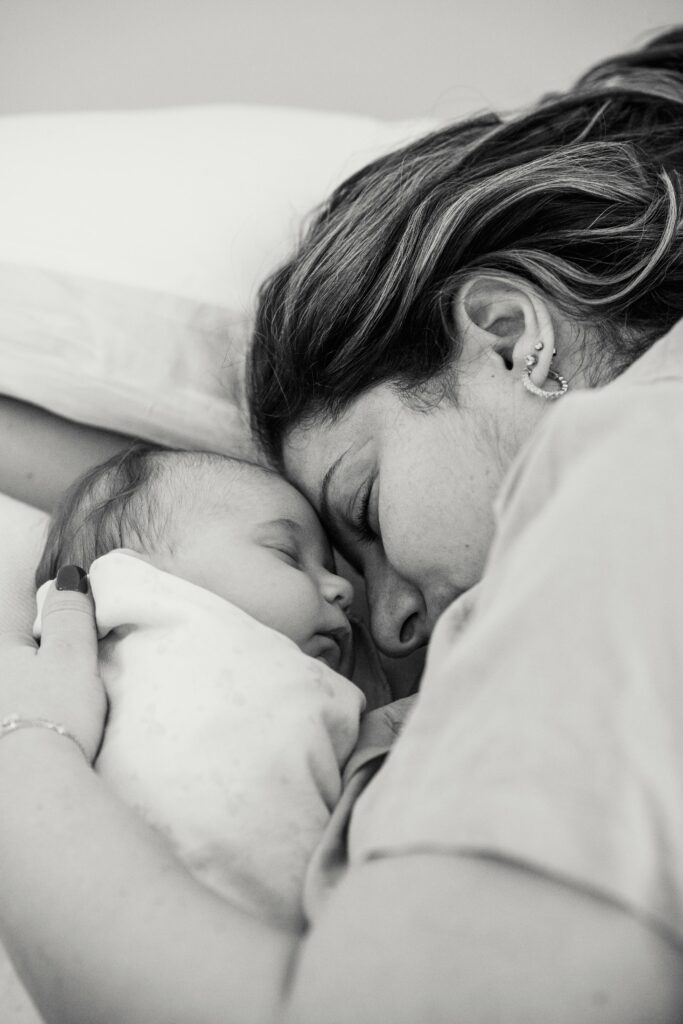So you and your partner have been discussing the possibility of starting a family, but you’re not quite sure if you’re ready to take that leap. It’s a big decision and one that shouldn’t be taken lightly. Luckily, there are some signs that can help you determine if you’re truly ready to embark on the incredible journey of parenthood together. From a mutual desire to have children to financial stability and emotional readiness, these signs can provide you with some guidance as you navigate this exciting chapter of your lives.

Emotional readiness
Feeling a strong desire to have children is a crucial factor in determining if you are ready to start a family. It’s important to examine your feelings and determine if you genuinely have a deep longing to become a parent. Parenthood requires immense love, patience, and dedication, so it’s essential to ensure that you have a genuine desire to embark on this journey.
Equally important is being mentally prepared to handle the responsibilities of parenthood. Raising a child comes with its fair share of challenges, and it’s crucial to evaluate if you are mentally equipped to handle the ups and downs that come with parenting. It requires emotional resilience, adaptability, and the ability to provide constant love and support to your child.
Additionally, having a stable and loving relationship with your partner is paramount. Parenthood is a journey that you will embark on together, and it’s crucial to ensure that your relationship is built on a strong foundation of trust, love, and commitment. Effective communication, shared values, and a supportive partnership are vital in creating a nurturing environment for your future child.
Financial stability
Being in a secure financial position is essential when considering starting a family. Raising a child involves various expenses, including healthcare, education, and basic needs. It’s crucial to evaluate your financial situation and ensure that you have a stable income and savings to provide for your child’s needs. Creating a budget and exploring potential financial burdens can help determine if you are financially prepared to support a child.
It’s important to consider the costs associated with raising a child, such as childcare, education fees, extracurricular activities, and healthcare expenses. Assessing your current financial stability and ensuring that you have a plan in place to meet these financial demands is crucial before embarking on the journey of parenthood.
Relationship readiness
Having open and honest communication with your partner about your desire to have children is essential. It’s vital to have conversations about parenting expectations, values, and goals. Understanding each other’s perspectives and finding common ground is crucial in creating a shared vision for raising a child.
Sharing similar values and goals regarding parenting is essential for a harmonious parenting experience. Discussing how you want to raise your child, including discipline methods, education, and cultural influences, can help determine if you and your partner are on the same page. It’s important to ensure that you both have a shared understanding and commitment to providing a loving and supportive environment for your child.
Maintaining a healthy and supportive relationship is vital when starting a family. Parenthood can be both rewarding and challenging, and having a strong partnership can help navigate through the ups and downs. It’s important to assess if you and your partner are committed to supporting each other through the journey of parenting, as this will greatly contribute to the overall well-being of your child.
Physical readiness
Being in good overall health is important when considering starting a family. It’s essential to evaluate any existing medical conditions and consult with healthcare professionals to ensure that you are physically capable of undergoing pregnancy and childbirth. Regular check-ups and discussions with your healthcare provider can help determine if you are physically ready for the demands of parenthood.
Pregnancy and childbirth can be physically demanding, and it’s important to be mentally and physically prepared for the changes that come with it. It’s crucial to be aware of the potential risks and complications associated with pregnancy, childbirth, and postpartum recovery. Understanding and being prepared for these possibilities can contribute to a smoother transition into parenthood.

Time and energy availability
Parenting requires a significant amount of time and energy investment. It’s important to evaluate if you have enough time to dedicate to parenting, as children require constant care, attention, and support. Balancing work, personal commitments, and childcare responsibilities can be challenging, so it’s vital to assess your schedule and determine if you are willing to prioritize your child’s needs over personal leisure activities.
Having a support system in place can greatly aid in managing the time and energy demands of parenting. Whether it’s help from family members, friends, or hiring professionals, having a support network can provide much-needed assistance and alleviate some of the responsibilities. It’s important to evaluate if you have access to reliable support and if you and your partner are willing to collaborate in sharing childcare responsibilities.
Readiness to make sacrifices
Parenting often requires making personal sacrifices for the well-being of your child. It’s important to ask yourself if you are prepared to put your child’s needs above your own. This may include sacrificing personal time, financial resources, and career opportunities. Being ready to prioritize your child’s well-being and happiness demonstrates a commitment to being a dedicated and loving parent.
Understanding that having children may require a shift in priorities and lifestyle is also crucial. Parenthood brings about significant changes, and it’s important to embrace and adapt to these changes. Assessing if you are open to adjusting your lifestyle to accommodate the responsibilities of parenthood can help determine your readiness.

Understanding the lifelong commitment
Parenting is a lifelong commitment and responsibility. It’s important to recognize that once you have a child, your role as a parent will continue throughout their lives. It’s crucial to understand the long-term impact of having children on your lifestyle, relationships, and personal growth. Being aware of the time, energy, and emotional investment required throughout your child’s development can help gauge your readiness for parenthood.
Continuous learning and personal growth are integral aspects of parenting. As your child grows, you will face new challenges, stages, and phases. It’s important to approach parenthood with an open mind and a willingness to continuously learn and adapt. Being prepared to evolve as a parent and embrace the different stages of your child’s life is a fundamental aspect of being ready to have children.
Supportive environment
Having a strong support system of family and friends can greatly contribute to the overall well-being of your family unit. It’s important to evaluate if you have a network of support in place that can provide emotional, practical, and logistical assistance when needed. This support system can help alleviate some of the challenges that come with parenting and provide guidance and advice along the way.
Living in a safe and child-friendly environment is essential when starting a family. Assessing your current living situation and ensuring that it is conducive to raising a child is crucial. Factors such as accessible amenities, a welcoming neighborhood, and a safe living environment are all important considerations when evaluating your readiness to have children.
Feeling supported by your partner in the journey of parenting is significant. It’s important to have open and honest communication with your partner and ensure that you are on the same page regarding your parenting roles and responsibilities. Having a partner who is actively engaged, supportive, and committed to co-parenting can greatly enhance the parenting experience.
Compatibility as parents
Complementing each other’s parenting styles and approaches is important when raising a child together. It’s crucial to assess if you and your partner have compatible parenting styles and if you are willing to compromise and collaborate when it comes to making parenting decisions. Being able to work together as a team is crucial for the overall well-being and upbringing of your child.
Respecting and supporting each other in parenting decisions is essential for a harmonious and nurturing environment. It’s important to evaluate if you are both willing to listen to each other’s perspectives and find common ground in making important parenting choices. A supportive and respectful partnership can greatly contribute to the success of your parenting journey.
Desire to nurture and love a child
Feeling a genuine desire to provide love, care, and support to a child is a key indicator of readiness for parenthood. Parenting involves nurturing the emotional, physical, and psychological development of your child. It’s important to assess if you have a natural nurturing instinct and if you genuinely enjoy spending time with children.
Being excited about the prospect of raising a family and fostering a loving and supportive environment is a strong sign of readiness. This excitement and enthusiasm for the journey ahead will drive your commitment to being a dedicated parent. It’s important to evaluate if you have the desire and passion to embark on the rewarding journey of parenting.






